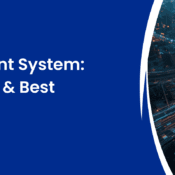Top 6 Security Compliance Challenges (and How to Overcome Them)

Top 6 Security Compliance Challenges (and How to Overcome Them)

Top 6 Security Compliance Challenges and How to Overcome Them
In today’s increasingly digital world, security compliance has become a top priority for businesses of all sizes. From protecting sensitive data to ensuring that your company meets regulatory standards, security compliance is no longer optional—it’s a necessity. However, achieving and maintaining security compliance is a complex task, fraught with challenges that organizations must navigate.
In this blog, we’ll explore some of the top security compliance challenges and provide actionable strategies to overcome them.
Overview of Security Compliance
Security compliance refers to the practice of adhering to a set of security standards, regulations, and best practices aimed at protecting sensitive information, systems, and networks from threats like cyberattacks, data breaches, or unauthorized access. It ensures that an organization follows legal and industry-specific requirements related to security and privacy, helping to safeguard data and build trust with customers, partners, and regulators. ISO 27001 compliance services support this process by helping organizations implement a structured information security management system (ISMS) that aligns with global standards and regulatory expectations.
Security compliance typically involves:
Security compliance involves adhering to industry-specific regulations that dictate how organizations should manage data security and privacy, such as GDPR for EU citizens’ data or HIPAA for U.S. healthcare organizations. It requires businesses to implement technical and administrative controls like encryption, access management, and data retention policies to safeguard systems. Compliance is an ongoing process that demands continuous monitoring, tracking of efforts, and documentation for audits. Additionally, it involves proactive risk management by identifying potential threats like data breaches or cyberattacks, assessing vulnerabilities, and taking steps to mitigate these risks to ensure ongoing compliance and security.
1. Understanding Complex Regulatory Requirements
One of the most significant challenges in security compliance is keeping up with the ever-evolving regulatory landscape. Whether it’s GDPR, HIPAA, or industry-specific standards, regulations can be overwhelming, particularly for businesses operating across multiple regions or countries.
Solution: To overcome this challenge, businesses should implement a robust compliance framework and establish a dedicated compliance team. Regular training and staying updated on regulatory changes through trusted legal or compliance experts can also make a huge difference in meeting the requirements effectively.
2. Data Security and Privacy Protection
Ensuring the security and privacy of customer data is at the core of security compliance. Cyberattacks are becoming more sophisticated, making it increasingly difficult to safeguard sensitive information. This poses a significant challenge for businesses looking to stay compliant with data protection laws.
Solution: Encrypting sensitive data both at rest and in transit is one of the best ways to protect it. Moreover, implementing access controls, data segmentation, and adopting a zero-trust security model can help reduce the risk of data breaches. Regular audits and vulnerability assessments will also ensure that your security measures are up to date.
Ensuring your business complies with HIPAA regulations is crucial for safeguarding sensitive health information. Seven Step Consulting offers expert HIPAA compliance services to help organizations maintain security standards and mitigate risks in the healthcare sector.
3. Balancing Compliance with Operational Efficiency
While security compliance requires stringent measures to protect data and systems, businesses often find themselves in a constant balancing act between ensuring compliance and maintaining smooth operational efficiency. Overly complex processes can hinder productivity, and poor integration of compliance tools can cause delays and frustrations.
Solution: Automation is key to striking a balance between security and efficiency. By automating routine compliance tasks, such as reporting and documentation, you can streamline the process while ensuring consistency and accuracy. Implementing integrated security solutions also ensures that compliance efforts are embedded within your daily operations.
For businesses handling personal data, staying compliant with GDPR is essential. GDPR compliance services can help your organization meet GDPR’s strict data protection requirements, ensuring you avoid penalties and maintain customer trust.
4. Lack of Employee Training and Awareness
Human error remains one of the top causes of security breaches. Employees who are not well-versed in security compliance practices can inadvertently expose their organization to risk through phishing attacks, poor password practices, or mishandling of sensitive information.
Solution: Regular security training and awareness programs are essential for creating a culture of compliance. Employees should be educated on the latest threats, company policies, and the importance of following best practices for data security. Conducting regular drills and simulations can help reinforce this knowledge.
5. Vendor and Third-Party Risk Management
In today’s interconnected world, most organizations rely on third-party vendors for various services, making security compliance even more complex. A vendor’s security vulnerabilities can become your own, exposing you to non-compliance risks.
Solution: Ensure that your vendors comply with relevant security standards by conducting thorough due diligence and ongoing assessments. You can mitigate third-party risk by requiring vendors to sign contracts that include security and compliance clauses, as well as monitoring their compliance status through regular audits.
To successfully navigate the evolving compliance landscape, partnering with a reliable consultant can streamline the process. Seven Step Consulting provides specialized consulting services, ensuring that your organization remains compliant with the latest regulations.
6. Managing and Storing Compliance Documentation
Maintaining the necessary documentation for security compliance can be both time-consuming and difficult. This includes contracts, audit reports, training logs, and evidence of compliance efforts. Without a proper system in place, finding the required documents during an audit can become a challenge.
Solution: Adopting a secure, digital document management system will allow you to store all compliance-related documentation in one central location. Such systems should allow for easy retrieval, tracking, and updates to ensure that your documentation is always up-to-date and ready for inspection.
Conclusion
Security compliance is a critical aspect of modern business, but the challenges that come with it are not insurmountable. By implementing the right tools, processes, and training, organizations can overcome these obstacles and maintain a secure, compliant environment. Remember that security compliance is an ongoing journey, not a one-time task. Stay proactive, stay informed, and prioritize your compliance efforts to ensure the long-term success and protection of your business.
FAQs
1. How can Seven Step Consulting help with GDPR compliance?
Seven Step Consulting offers GDPR compliance services to help businesses navigate the complexities of GDPR regulations. Their expert team ensures that your organization meets the strict data protection requirements, reduces the risk of penalties, and maintains customer trust through tailored compliance strategies.
2. How can Seven Step Consulting assist with HIPAA compliance in the healthcare industry?
Seven Step Consulting provides HIPAA compliance services that help healthcare organizations secure sensitive patient data. Their services ensure your business meets HIPAA’s privacy and security standards, protecting both patient information and your organization from potential compliance violations.
3. Can Seven Step Consulting help with risk management and compliance for third-party vendors?
Yes, Seven Step Consulting assists businesses in managing third-party risk by offering thorough vendor assessments and compliance audits. They ensure that your vendors meet the necessary security standards, helping mitigate compliance risks that can arise from third-party relationships.
4. How can your services help automate compliance tasks?
Seven Step Consulting helps businesses automate compliance processes, including reporting and documentation, to improve efficiency and reduce the manual burden. Their solutions streamline compliance workflows, allowing businesses to focus on operations while maintaining consistent adherence to regulations.
5. What role does your Consulting play in managing data security and privacy protection?
Seven Step Consulting offers expertise in implementing data protection strategies such as encryption, access management, and regular security audits. Their services help businesses safeguard sensitive data, ensure privacy compliance, and protect against data breaches, keeping your systems secure.
6. How can Seven Step Consulting support businesses in maintaining ongoing compliance?
Seven Step Consulting offers continuous monitoring and support to ensure your business remains compliant over time. Their team stays updated with evolving regulations and provides regular assessments to keep your compliance efforts on track and prevent any security lapses.
7. What compliance documentation solutions do your services offer?
Seven Step Consulting helps businesses maintain and store compliance documentation securely. Their digital document management systems ensure easy tracking, retrieval, and updates of compliance records, making audits and assessments more efficient and less time-consuming.

Ajai Srivastava,
Founder Director of Seven Step Consulting Pvt. Ltd. , which comprises GRC Consulting, GRC Automation, and Books Publication, brings 35+ years of leadership across multinational companies. A seasoned consultant, auditor, trainer, and author, he is known for shaping ISMS in India, delivering 3000+ training hours, and advancing global standards and compliance practices.




